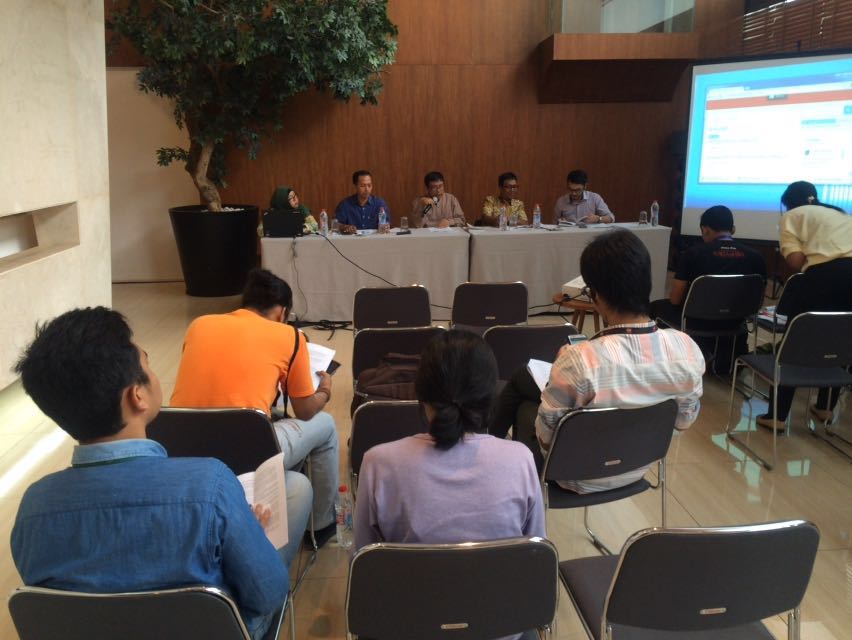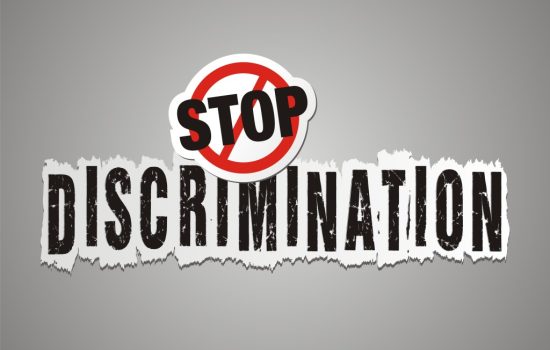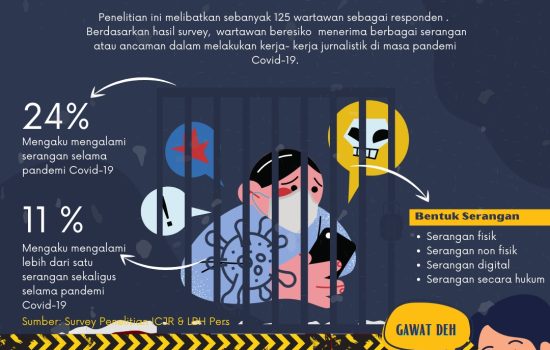Currently, government and the House of Representatives is discussing the draft of the Indonesian Criminal Code (“R KUHP”), which started with a discussion of Book I. In a near future, the House will be discussing Book II, as soon as the results of the discussion of Book I has been agreed, approximately in the middle of this year. Book II of the R KUHP regulates criminal acts as well as its sentences.
From a number of these articles under the R KUHP, there are still many general provisions and criminal offenses which could potentially cause a lot of debate. National Alliance of the Criminal Code Reform (Aliansi Nasional Reformasi KUHP – “KUHP Alliance”) feels that it is important to remind the public and the government as well as the House to maintain their focus on the discussion of these crucial articles in the House. There are several important notes regarding Book II of the R KUHP, including:
- Criminal offences related to the position of individual against the State, where the State protection clauses are getting stronger (for instance defamation against the president, hate speech against the government, defamation against to public institutions, and so forth);
- Criminal offences related to the protection of the public interest, however, the articles under the R KUHP are considered insufficient to protect the interest of the people (for instance human trafficking, corruption, narcotics, and so forth);
- Criminal offences related to morality or over-criminalization of victimless crime (for instance adultery, prostitution, and so forth);
- Increase of imprisonment sanction as a criminal sentence (criminal sentence is increasing drastically, detention is really easy to do, over-criminalization, and excessive; and
- Unclear codification system
From the description above, it can be seen that Book II of the R KUHP is more excessive and seems to “colonize” its own citizens compared to the current version of Indonesian Criminal Code which still in force. The KUHP Allicance considered that the absence of sentencing patterns, repetition and rising of criminal offences show that the government does not have a strong foundation in formulating a criminal act, the degree of seriousness, and to determine criminal sentences.
In some practices, such arrangements are in fact has raised several issues of serious human rights violations. As an example, it can be seen that currently the provision on defamation against the president and hate speech against the government are regulated once more. It should be noted that these provisions have been revoked and declaredunconstitutional by the Indonesian Constitutional Court. These provisions may also re-raise the overcrowded prison problem, because these provisions mandates the usage of imprisonment sentence and people may be easily proceed for criminal sentence.
For that reason, the KUHP Alliance requests the government and the House to focus on the discussion of Book II. As well as to the people to remain supervise this criminalization issue. It is indeed very dangerous if a state is very excessive to its citizens.
| Provision in the R KUHP | Crucial Issue(s) | |
| Book II | ||
| Spreading Communism and Marxism
Article 219 – 220 |
Debatable due to unclear provision, vague and may potentially violate human rights. Only addressed to a limited ideology of Leninism and Marxism | |
| Defamation against the president and against the government
Article 263 |
An article which revived by the composer of the R KUHP. It is considered as a democratic drawback, restrictions on freedom of expression and contradicts the decision of the Constitutional Court | |
| Criminal offence of “Makar”
Article 222 – 227 |
The term “Makar” (aanslag) has undergone a shift on its meaning from the original meaning aanslag (assault), resulting in the use of this article as a tool to penalize and curb the people | |
| Remove and replace the ideology of the State
Article 221 |
The provision is very flexible and broad, may result in over-criminalization, criminal sentence is very high up to 10 years imprisonment sanction | |
| Hates speech against the Government
Article 284 |
One of the articles which revived by the composer of the R KUHP. It is considered as a democratic drawback, restrictions on freedom of expression and contradicts the decision of the Constitutional Court. Could be a manifestation of subversive article | |
| Defamation against state institution
Article 407 and 408 |
Potential to be broadly interpreted, restraints rights and freedoms of citizens, and could also be a manifestation of subversive article | |
| Torture
Article 668 – 669 |
Criminalization of torture in the R KUHP is also very limited since it only criminalizes Article 1 of the Convention against Torture and has not yet regulates criminal provisions in Article 16 of the Convention Against Torture, which essentially regulates acts of cruel, inhuman, and degrading treatment. | |
| State Secrets and Confidential Information
Article 235 – 241 |
There are still a lot of unclear provisions and may be multi-interpreted, for instance “a state secret”. | |
| Gross human rights violations (war crimes, genocide and crimes against humanity)
Article 400 – 406 |
The formulation is considered insufficient to meet international standards, the elements of crime are considered vague and weak, there are many other restrictions which have not been included in the R KUHP. (The quality of criminal offense is decreasing compared to Law No. 26 of 2000) | |
| Racial discrimination
Article 286 – 289 |
This crime is still regulated under crimes against public order chapter. There are differences in the construction of racial discrimination and crimes against public order, and thus, criminal act of racial discrimination should be stand alone. | |
| Incest
Article 490 |
Provision of incest crime in the R KUHP is too narrow. There is no clear distinction between incest and lewd acts, between sexual intercourse and protection of children which has or has not been married, as well as the distinction of the criminal offences | |
| Adultery
Article 484 |
Excessive criminal acts and tend to be over-criminalized, for instance adultery which committed by a person which has not been married. The criminal offence is imprisonment sanction up to 5 years | |
| Living together as a husband and wife
Article 488 |
Excessive criminal acts and tend to be over-criminalized | |
| Prevention of pregnancy and abortion (contraception)
Article 481 |
Tend to be over-criminalized. With this provision, people who show contraception may be criminalized. | |
| Rape
Article 491 – 499 |
There are still some elements that are not yet regulated and should be emphasized, for instance the concept sexual intercourse, third-party element, marital rape, and unclear concept of child rape | |
| Crimes against Religion and religious life
Article 348 |
The provision is not firm and can be multi-interpreted. Moreover, the protection is only given to registered religion and may result in discrimination | |
| Pornography
Article 470 – 490 |
Even more flexible than the Law on Pornography. There is no limitation pornography. Formulation and clarity of criminal offense is insufficient, vulnerable to multi-interpretation, unclear restriction to use criminal offences, and tend to be over-criminalized | |
| Narcotics and Psychotropic
Article 507 – 534 |
There are still many problems on the provisions on narcotics, inconsistent use of narcotics term, unclear distinction between the narcotics traffickers and narcotics users, and narcotics users may also be punished with imprisonment sanction | |
| Corruption
Article 687 – 706 |
The quality of corruption criminal offence has decreasing, both in terms of its formulation and its sentences. Many people are still in need to be reassured that the R KUHP will not weaken the sector in combating corruption and corruption criminal offence will not be removed from the R KUHP | |
| Money laundering
Article 760 – 767
|
The provision on money laundering is still very minimal and narrow. There are several provisions which are not firm, such it is not necessary to prove the predicate offense. | |
| Street prostitution
Article 489 |
The provision is only targeting street prostitution, while the users and pimps are remain untouched (contradicts the provision under the current Indonesian Criminal Code, and may target the victims of human trafficking
|
|
| Human trafficking
Article 555 – 570 |
The formulation of criminal offences is not strong enough | |
| Defamation
Article 540 – 550 |
The provision is not compatible with the International standards, especially to Article 19 of the International Covenant on Civil and Political Rights. UN Special Rapporteur for Freedom of Expression has consistently called for eliminating criminal defamation. Criminal sentence for this crime is increasing significantly up to 5 years imprisonment sentence. Defamation cases can still be handled with civil mechanism. | |
| The inclusion of Death penalty
|
Death penalty is included arbitrarily for numerous crimes which cannot be qualified as the “most serious crimes”. Death penalty is given for ordinary crimes, such as murder, narcotics, chemicals, and so forth | |
| 25 | The inclusion of minimum criminal offences | The inclusion of minimum criminal offences may result in loss of judge’s independency in deciding criminal sentences. In several laws, these provisions were being ignored by the Supreme Court with the presumption that criminal offences should be based on objective considerations and arguments from judges, so, it is irrelevant to include minimum criminal offences |
| Transitional Provisions
Article 775 – 782 |
There is inconsistency in the transitional provisions; specifically the position of the R KUHP codification which may cause confusion and it should be arranged in a separate one specific law. | |
National Alliance of the Criminal Code Reform (KUHP Alliance) consists of: Elsam, ICJR, PSHK, ICW, LeIP, AJI Indonesia, LBH Pers, Imparsial, KontraS, HuMA, Wahid Institute, LBH Jakarta, PSHK, ArusPelangi, HRWG, YLBHI, Demos, SEJUK, LBH APIK, LBH Masyarakat, KRHN, MAPPI FH UI, ILR, ILRC, ICEL, Desantara, WALHI, TURC, Jatam, YPHA, CDS, ECPAT




